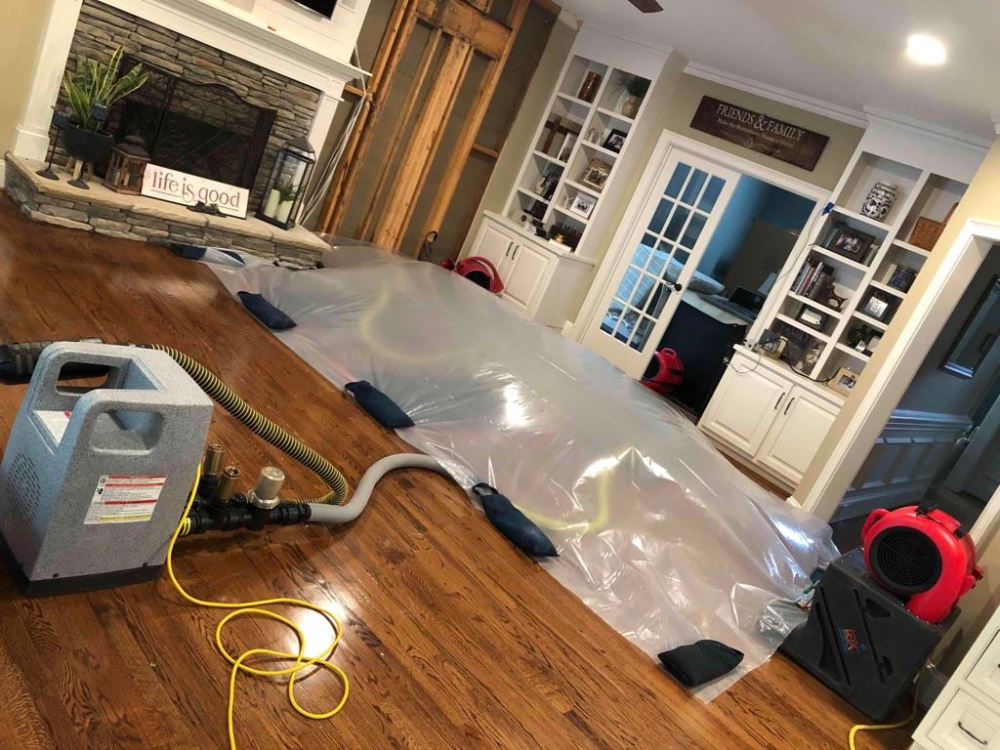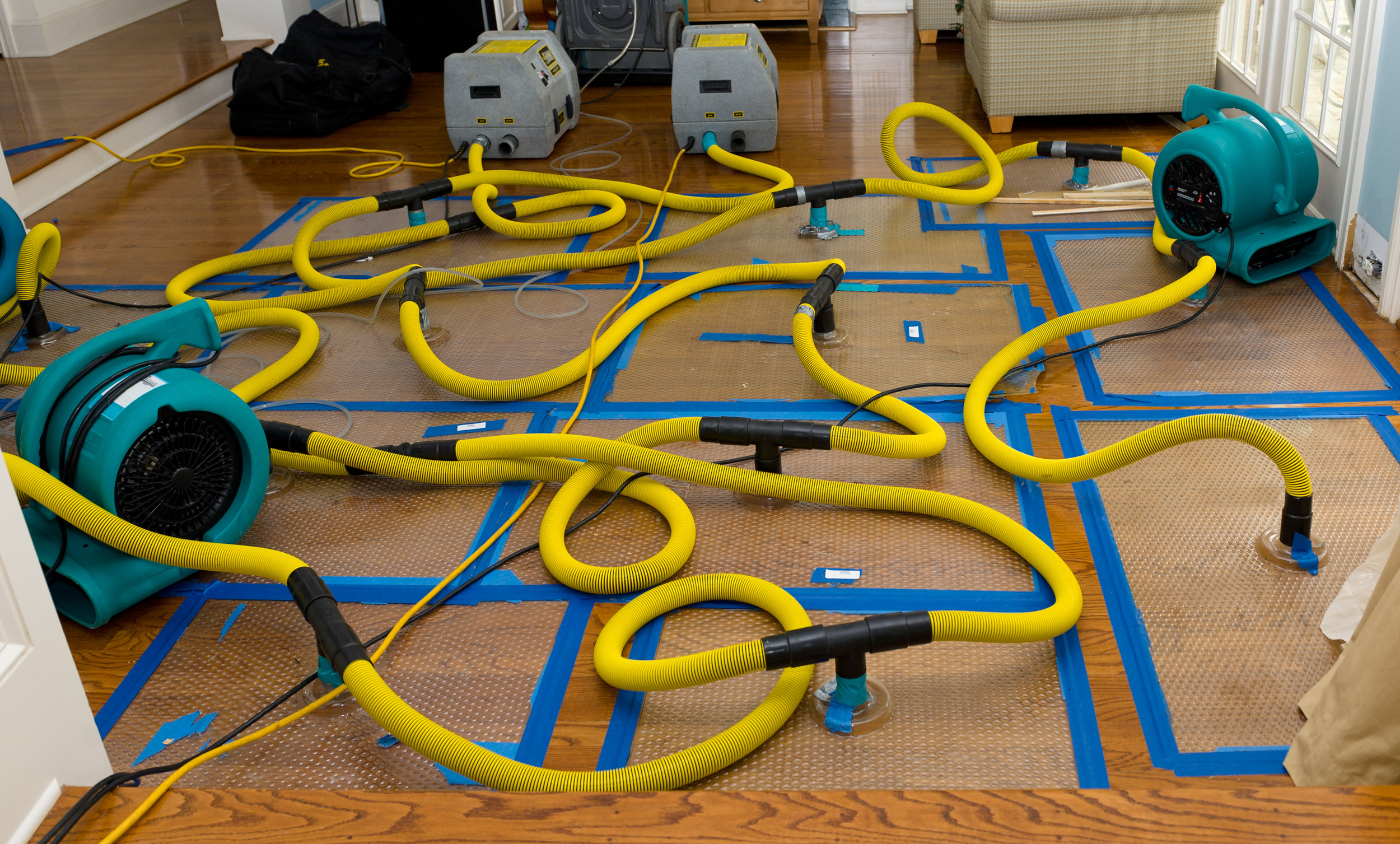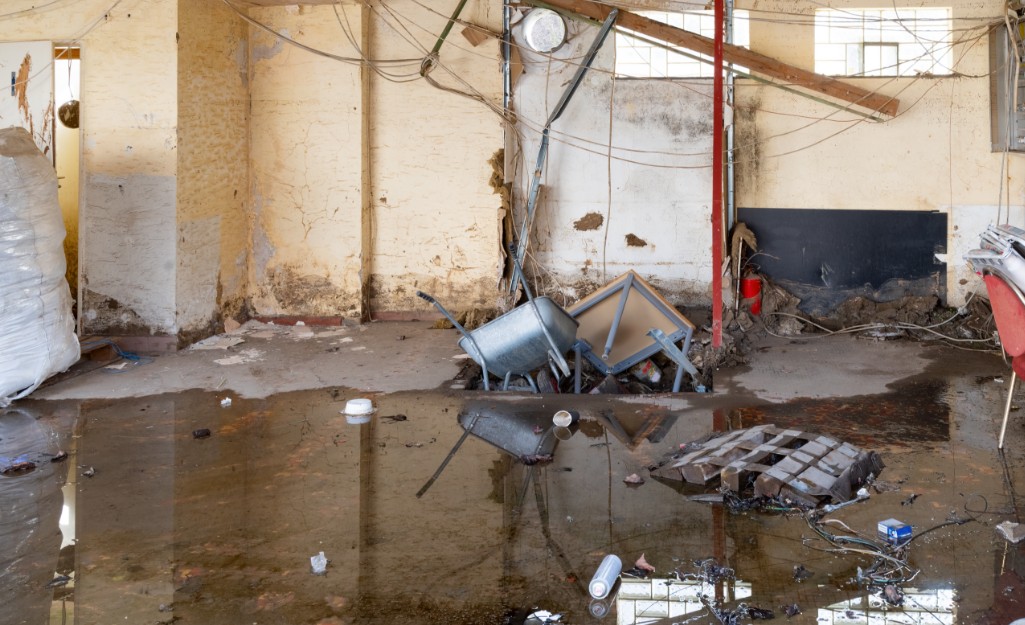The Real Cost of Skipping Timely Water Damage Repair
The Real Cost of Skipping Timely Water Damage Repair
Blog Article
The Full Overview to Navigating the Difficulties of Water Damage Restoration
Water damages can strike suddenly, leaving you with a challenging mess to tidy up. Understanding the reasons and assessing the level of the damages is essential. Your immediate activities can make a considerable distinction in the end result. But what actions should you take initially, and exactly how can you assure you're protected progressing? The answers depend on an extensive approach to reconstruction that every homeowner need to understand.

Recognizing the Sources Of Water Damage
Water damage can strike unexpectedly, typically leaving you scrambling to deal with the after-effects. Understanding the sources of water damages is necessary for avoidance. Water Damage Repair. Common offenders include leaky roofs, burst pipes, or malfunctioning appliances. You might also run into problems with your plumbing systems, like stopped up drains pipes or sewage back-ups, which can result in significant water intrusion. Weather-related cases, such as hefty rainfalls or flooding, can likewise damage your residential or commercial property. Additionally, the age of your home contributes; older frameworks usually have weakening materials that are more susceptible to leakages and damages. Also small issues, like condensation from HVAC systems, can accumulate and create issues gradually. By recognizing these prospective sources of water damages, you can take proactive procedures to guard your home and decrease future threats. Staying notified will certainly encourage you to acknowledge early indications and act swiftly when problems arise
Evaluating the Degree of the Damage
Assessing the extent of the damage is essential for establishing the appropriate feedback when you have actually identified a prospective water damage issue. Begin by evaluating the influenced locations completely. Seek visible indicators like water spots, deformed floors, or peeling off paint. Don't fail to remember to inspect covert places, such as behind wall surfaces or under carpetings, where moisture may linger.Next, determine the sort of water entailed-- tidy, gray, or black-- given that this affects the seriousness of the damage and necessary remediation steps. Use a moisture meter to determine moisture levels in wall surfaces and floors, helping you determine sticking around dampness that might bring about mold and mildew growth.Document everything with pictures and notes, as this information can be essential for insurance coverage claims. By accurately examining the damage, you'll be better equipped to decide on the ideal restoration method and prevent further concerns down the line.
Immediate Steps to Take After Water Damage
After experiencing water damages, the first thing you require to do is analyze the situation carefully. Prioritizing your safety is necessary, so ensure the location is risk-free before taking any kind of more actions. Don't fail to remember to document whatever extensively, as this will certainly be essential for insurance coverage cases and remediation initiatives.
Examine the Damages
Assessing the damages swiftly is vital for decreasing the effect of water intrusion. Begin by evaluating the impacted locations to establish the extent of the water damages - Flood Damage Restoration. Try to find noticeable indications like drenched rugs, deformed floorings, and tarnished walls. Look for covert water, too, particularly in crawl rooms and behind devices. Utilize a dampness meter if you have one, as it can aid identify areas that require focus. Record everything with notes and pictures; this will certainly be beneficial for insurance cases. Bear in mind to analyze your items as well-- furnishings and individual products may require specialist cleaning or disposal. By comprehending the degree of the damage, you can make informed decisions concerning the next action in the reconstruction procedure
Prioritize Safety First
Recognizing the degree of water damages is simply the beginning; your safety and security comes first. Prior to you go into a water-damaged location, make particular to shut off the electrical power and gas supply to stop any type of risks. Wear protective equipment, consisting of boots and handwear covers, to secure yourself from impurities. Be cautious of structural instability-- ceilings, floors, or wall surfaces may have weakened. Prevent contact and phone call specialists for aid if the water is coming from a sewage resource. Maintain kids and pet dogs away from the damaged location. Leave instantly if you smell gas or see electrical sparks. Remember, prioritizing your safety warranties you can effectively attend to the damages without danger to your health. Always err on the side of care.
Document Whatever Extensively
As you begin addressing water damage, documenting everything extensively is necessary for both insurance policy cases and reconstruction efforts. Begin by taking clear photos of the impacted areas, catching the level of the damages. Make certain to keep in mind the day and time of the incident. Produce a listing of damaged things, consisting of furnishings, home appliances, and individual possessions, in addition to their estimated worths. Videotape any type of actions you take, like speaking to experts or moving products to avoid further damage. Keep all billings and invoices connected to the restoration process. When submitting a case and assist the remediation group recognize the scenario better, this documents will certainly enhance your situation (Water Damage Cleanup). Bear in mind, thorough paperwork can make a considerable difference in your healing trip

Minimizing Further Problems and Avoiding Mold Growth
When water damage occurs, acting swiftly can substantially reduce the danger of further issues, especially mold development. Initially, remove any type of standing water utilizing pumps or damp vacuum cleaners. Next, dry the influenced locations completely. Open up windows, utilize followers, and think about dehumidifiers to expedite the drying process. Aim for a moisture level below 60% to prevent mold and mildew spores from settling.Inspect all materials and surfaces influenced by water; dispose of anything that can't be sufficiently dried, like soaked carpets or drywall. Clean and sanitize continuing to be surfaces with a combination of water and detergent, or a specialized mold-preventive solution.Keep an eye on the location over the following few weeks. If you notice any kind of stuffy scents or discoloration, address it right away. Keep in mind, timely activity not just protects against mold growth however likewise safeguards your home and wellness.
Working With Water Damages Restoration Professionals
After taking prompt steps to reduce water damage and prevent mold and mildew growth, it's time to contemplate specialist assistance. Water damage remediation experts have the know-how and tools needed to take care of substantial damage efficiently. Be prepared to describe the scenario in detail when you get to out. This assists them evaluate the extent of the damages and prepare accordingly.Once they get here, expect an extensive evaluation and a thorough plan for remediation. They'll utilize specialized devices to draw out water, dry out affected areas, and sanitize your space. Don't be reluctant to ask inquiries during the process; understanding their approaches can reduce your concerns.You should additionally talk about timelines and what to expect at each phase of the remediation. Collaborating honestly with these experts guarantees you remain educated and included, aiding you restore your room extra efficiently. Trust their competence, and you'll see your home return to its pre-damage condition.
Navigating Insurance Coverage Insurance Claims for Water Damages
Steering insurance policy claims for water damages can really feel overwhelming, particularly if you're unfamiliar with the process. Review your insurance coverage policy to understand what's covered. Look for specifics on water damages, as not all policies treat it the exact same. Paper the damages extensively-- take pictures and make notes about what took place and when.Next, contact your insurance policy service provider immediately. Record the damage and give them with your documentation. They'll assign an insurance adjuster to evaluate the scenario. Be prepared to address questions and provide extra info as needed.Stay organized throughout the procedure. Maintain a document of all interactions, including days, names, and details of conversations. Don't think twice to appeal if your insurance claim is denied or you feel it's insufficient. Know that determination can repay, so advocate on your own to guarantee you get the protection you're entitled to.
Tips for Future Water Damage Prevention
To maintain your home risk-free from water damage, regular upkeep checks are important. Do not forget the worth of setting up water detection systems, as they can notify you to leakages before they end up being significant problems. By remaining positive, you can save on your own time, cash, and stress down the road.
Normal Maintenance Checks
While it could seem tiresome, conducting routine maintenance checks can considerably minimize the risk of future water damages in your home. Start by examining your roof covering for missing out on shingles or leaks; even tiny concerns can rise swiftly. Check downspouts and rain gutters to assure they're clear and guiding water away from your foundation. Try to find signs of moisture in basements or crawl spaces, and resolve any kind of leakages from pipelines or home appliances right away. Bear in mind to examine your sump pump regularly to verify it's operating appropriately. Don't fail to remember concerning your cleaning equipment hoses; replace them every couple of years to avoid ruptured calamities. By staying proactive with these checks, you'll save on your own time, cash, and anxiety in the long run.
Mount Water Discovery Solutions

Often Asked Questions
The length of time Does the Water Damages Repair Process Commonly Take?
The water damage restoration process commonly takes anywhere from a few days to numerous weeks, depending on the degree of the damage. You'll wish to act swiftly to decrease additional problems and accelerate the procedure.
Can I Remain In My Home Throughout the Reconstruction Refine?
You can remain in your home during the remediation procedure, however it depends on the level of the damage. If it's serious, it's more secure to temporarily relocate up until the job's finished and your home's risk-free.
What Personal Items Can Be Salvaged After Water Damages?
After water damage, you can often salvage things like garments, books, and electronics, provided they're not soaked or musty. Constantly examine their condition rapidly and speak with click here professionals for suggestions on repair and safety and security.
Exist Any Kind Of Do It Yourself Techniques for Bring Back Water-Damaged Items?
Yes, you can use DIY approaches to bring back water-damaged products. For furniture, air-dry and apply a wood conditioner. For fabrics, clean them thoroughly and air-dry. Always look for mold before attempting any kind of remediation.
How Can I Identify Hidden Water Damages in My Home?
To determine concealed water damage, look for water discolorations on wall surfaces and ceilings, pay attention for dripping audios, feel for wetness in products, and check out areas near plumbing for indicators of mold and mildew or mildew growth. Once you've determined a prospective water damage problem, evaluating the level of the damages is essential for identifying the proper feedback. As you start dealing with water damage, documenting everything completely is vital for both insurance policy claims and remediation initiatives. Water damage repair specialists have the expertise and devices needed to handle extensive damages properly. Installing water detection systems can be a game-changer for avoiding future water damages in your home. The water damages reconstruction procedure generally takes anywhere from a couple of days to numerous weeks, depending on the degree of the damage.
Report this page